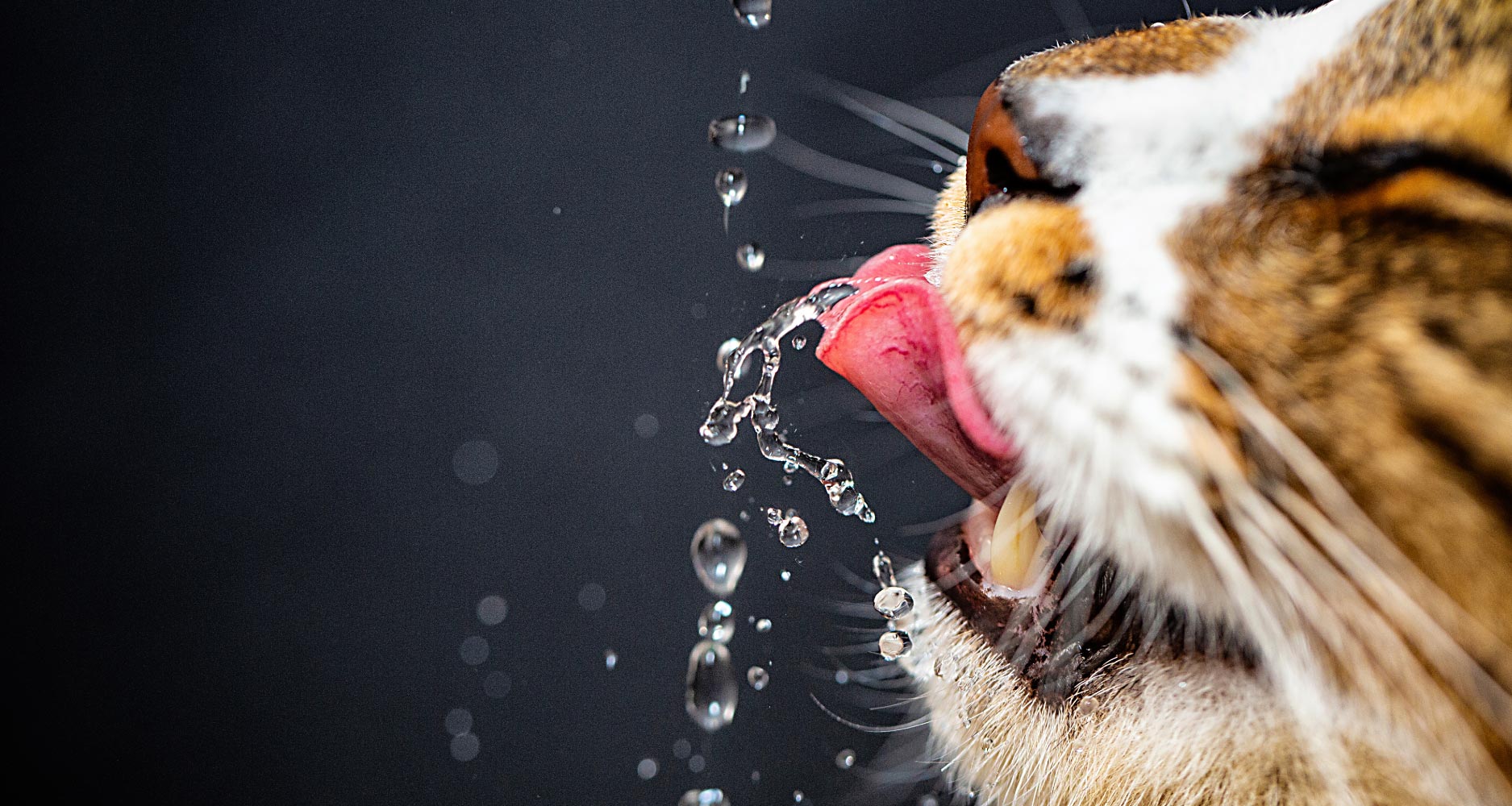HEALTH & WELLNESS

VOTING BOOTH

TRENDING

LIONS FOUNDATION OF CANADA DOG GUIDES
Lions Foundation of Canada Dog Guides and its founding program, Canine Vision Canada, was established in 1983. It’s the largest school of its kind in Canada with its training school in Oakville and breeding facility in Breslau.
Management of Cats Living with CKD

Chronic kidney disease (CKD) requires lifelong treatment and can be challenging for both the cat and its human family.
CKD is irreversible and incurable; however, management of nutrition, hydration, lifestyle, and medical interventions can:
- slow the progression of the disease
- increase lifespan and improve quality of life
MANAGEMENT OF COMMON SYMPTOMS OF CKD
Although every cat is different, cats with CKD generally have a good quality of life, if these common symptoms are managed:
- Nausea: Because waste products build up in the blood of cats with CKD, they may feel nauseous.
- Decreased Appetite: Most cats don’t want to eat when they feel nauseous.
- Weight Loss: Because of diminished food intake cats with CKD often lose both muscle and fat.
- Dehydration: Diseased kidneys have difficulty concentrating urine and lose a lot of water.
LIFESTYLE INTERVENTIONS TO MANAGE FOOD AND HYDRATION
Focus on Eating
Cats that have been diagnosed with CKD need to eat enough. Not only do they need to eat enough, they need to eat enough of the right type of foods for their condition. Finding a kidney-friendly diet that your cat finds palatable can be challenging. Proper food intake is just as important as medications. If a cat with CKD is not eating, a vet should be consulted immediately to formulate a long-term plan of action to encourage eating.
Find out more about this below, in the Nutritional Intervention section.
Focus on Water Intake
The kidneys are supposed to get rid of extra fluid and waste by producing and excreting urine. However, in a cat with CKD, it doesn’t really help because the kidneys are not filtering waste products properly. Because cats with CKD urinate more frequently than healthy cats, they need to drink more water to cope with excessive thirst caused by excessive urination. Encouraging your cat to drink can be done in a variety of ways, such as having numerous water bowls available, feeding your cat wet food, using water fountains and dripping taps. It is important to find what works for your cat.
If your cat has CKD, ask your vet how you can increase your cat’s water intake in a practical, sustainable way.
NUTRITIONAL INTERVENTIONS
Minerals & Vitamins
Getting rid of the waste products of protein metabolism is hard work, especially for kidneys that have lost some of their function. However, cats with CKD still require protein, but less than healthy cats and it’s important that this reduced amount of protein is of a high quality. The body needs some protein to function properly and to maintain a healthy weight. Calories missing from reduced protein need to be made up elsewhere. A prescription diet can be the answer.
Kidney support diets should provide the following:
- Lower amounts of high-quality, easy-to-digest proteins
- Low in phosphorus to limit additional kidney damage
- Added fish oil (omega-3 fatty acids) to protect against inflammation
- Enriched in natural antioxidants such as vitamins C and E
Mineral and vitamin imbalances can cause many problems, for example, an inadequate potassium supply, caused by frequent urination, may lead to:
- Lethargy
- Stiff neck
- Weakness
- Stilted gait
- Hoarseness
- Constipation
- Muscle wasting
- Trouble breathing
- Plantigrade posture
- Seizures or twitching
- Increased nighttime urination
Blood and urine tests can help point out imbalances which can then be addressed directly to treat or ease certain symptoms. Dietary adjustments, such as introducing an appropriately balanced prescription diet, are almost always necessary once a cat has been diagnosed with CKD.
The following nutrients also play a role in the development and management of CKD:
Fat | Fiber | Sodium | Carbohydrates | Essential Fatty Acids | Amino acids | Vitamins
MEDICAL INTERVENTIONS
Symptoms, infections, inflammation and other diseases need to be treated and managed if and when they surface and in the long-term if required. It’s not uncommon for cats with CKD to experience or suffer from one or more of the following:
- Nausea: treatment will depend on cause
- High blood pressure: treated with amlodipine
- Constipation: treated with enema or laxatives
- Metabolic acidosis: treated with potassium citrate
- Ulcers: treated with stomach protectants/antacids
- Hyperphosphatemia: treated with phosphorus binders
- Anemia: treated with iron supplement and Vitamin B supplement
- Infections, including urinary tract infection: treated with antibiotics
- Kidney stones: treatment will depend on severity, amongst other things
- Crashing: possibly caused by severe dehydration, kidney infection or kidney stones
- Secondary hyperparathyroidism caused by phosphorus and calcium imbalances: treatment can include phosphorus control, among others
Don’t administer any medications without first consulting your vet. Keep in touch with your veterinarian and schedule frequent visits as your cat’s disease progresses.
MOVING FORWARD
Cats with CKD will need to go for checkups as often as required by the attending vet to ensure the treatment plan remains appropriate for the individual cat’s circumstances. Treatment and management of CKD can have positive impact on your cat and provide a longer and happier life.









